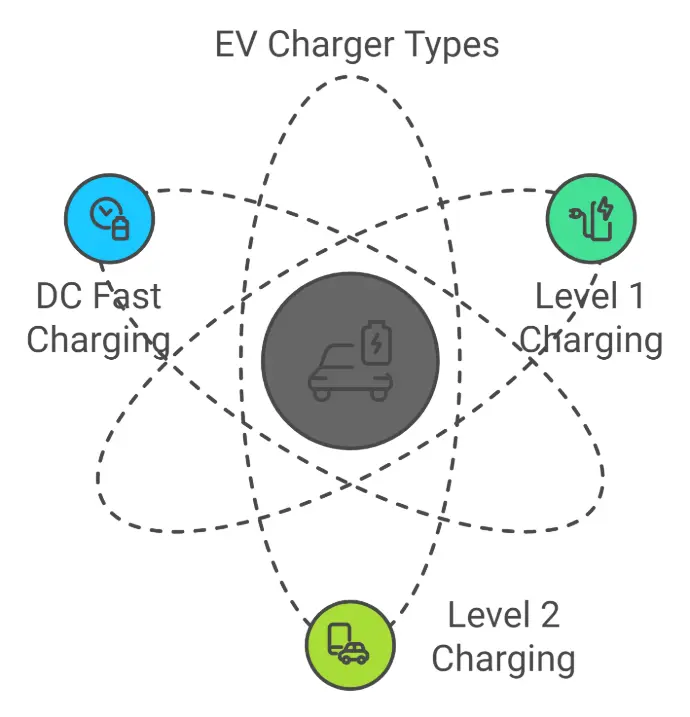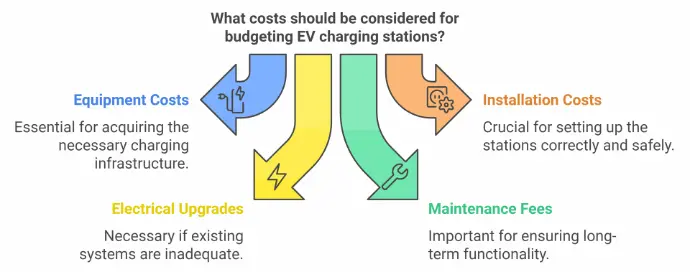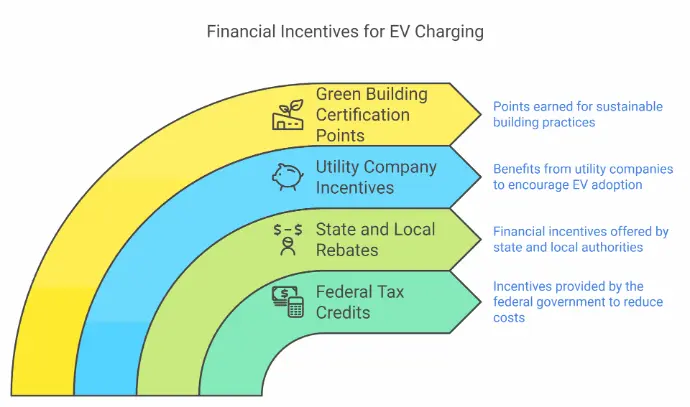Electric vehicles (EVs) are rapidly becoming the new standard in transportation. As a building owner or manager, installing EV charging infrastructure isn't just an amenity—it's becoming a necessity. Here's a good place to start researching what you need to know to prepare your building for EV charging.
Assess Your Current Electrical Capacity
Understanding your building's electrical infrastructure is the first step in EV charger installation. Start by examining your building's total electrical capacity and how much power is currently being used during peak periods. This analysis will reveal how many charging stations your infrastructure can realistically support without requiring upgrades. Remember to factor in not just current demand, but anticipated future needs as EV adoption grows. We can perform a detailed load analysis to determine the available capacity and recommend any necessary upgrades to support your desired number of charging stations.

Choose the Right Charging Equipment
There are three main types of EV chargers:
- Level 1 (120V): Standard outlet charging, suitable for long-term parking
- Level 2 (240V): Most common for commercial buildings, charges 4-6 times faster than Level 1
- DC Fast Charging: Provides rapid charging but requires significant power infrastructure
Planning Your Installation
A successful EV charging installation requires careful consideration of several factors. The location of your charging stations should prioritize accessibility while minimizing the distance for electrical cable runs to reduce installation costs. Proper lighting and weather protection are essential for user safety and equipment longevity. Your installation must also comply with ADA requirements, ensuring an appropriate number of accessible charging stations. Clear signage and pavement markings help direct users and prevent non-EVs from occupying charging spaces. Working with an experienced installer will help navigate these requirements while optimizing the layout for your specific building configuration.
Cost Considerations
Factor in these expenses when budgeting:
- Equipment costs ($2,000-6,000 per Level 2 station)
- Installation ($2,000-10,000 per station)
- Electrical upgrades if needed
- Ongoing maintenance and networking fees
- Insurance adjustments


Available Incentives
Many jurisdictions offer financial support:
- Federal tax credits
- State and local rebates
- Utility company incentives
- Green building certification points
Future-Proofing Your Investment
Making your EV charging installation scalable from the start can save significant costs down the road. Consider installing additional conduit during initial construction to simplify future expansion of charging stations. Networked charging stations offer remote management capabilities and detailed usage analytics, helping you optimize your system over time. As EV adoption grows, power demands will increase, so work with your electrical contractor to plan for potential increased capacity needs. Smart load management systems can help balance power distribution among multiple charging stations, maximizing the use of your available electrical capacity while avoiding costly upgrades.
Next Steps
Contact Encom for a comprehensive site evaluation. Our team will help you develop a customized EV charging solution that meets your building's current needs while preparing for future demand.